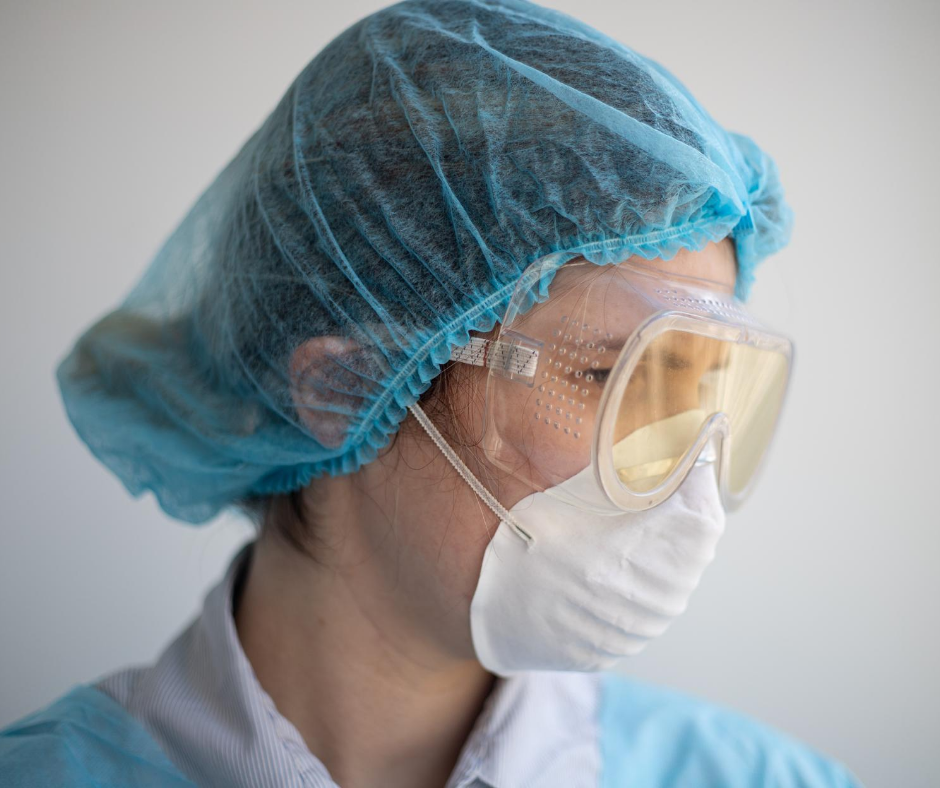#thevalueoflabor
THE VALUE OF LABOR 2020 is Women’s AdvaNCe’s campaign to highlight stories of women in the workforce. With an emphasis on uplifting the voices of women storytellers. #TheValueofLabor is a Women AdvaNCe project funded by The NC Families Care Coalition. As members of the coalition Women AdvaNCe works to improve paid family medical leave, pregnant worker accommodations, and living wages.
 For the past twenty years *Alicia has worked in long-term care facilities putting the needs of her patients above her own. “I know they are separated from their families,” she offered. “So, WE become their family.”
For the past twenty years *Alicia has worked in long-term care facilities putting the needs of her patients above her own. “I know they are separated from their families,” she offered. “So, WE become their family.”
During the COVID-19 pandemic, some have referred to Certified Nursing Assistants (CNAs) as unsung heroes of the nursing field. But is that reflected in their treatment?
These, often underpaid, caregivers spend the most time with patients every day, helping them to bathe, eat, dress and complete many other intimate daily tasks.
Alicia says it’s not just a job, but a calling. “I love taking care of people. That’s just been my passion,” she shared. “I call it the ‘day of life.’ When I am coming, they know we’re gonna have some fun. That extra compassion and love, and at least while I am there, everything will be okay.”
The pandemic progression
Alicia says she was willing to continue working in multiple nursing care facilities after she learned of the pandemic in February, as long as the facility was following CDC guidelines. “It has been a whirlwind. It started with the CDC faxing us precautions about a virus back in February. Residents didn’t know what was going on. They started getting stressed out and wouldn’t come out of their rooms.”
Alicia says that things progressed in a way that made it impossible for her to continue working in her primary role as a CNA at Greensboro’s Camden Place Health and Rehab Center. She said, by early April, Camden had created a mysterious isolation hall. She saw a laboratory tech (not affiliated with facility) leaving the hall “in full gear.” Alicia added, “She told me to steer clear from assignments on the hall without PPE.”
Meanwhile, Alicia learned more about potentially fatal risks for those with compromised immune systems. “We come into contact with diseases every day, but this is different.” She shares a home with her adult daughter who has sickle cell anemia.
“They finally gave me an assignment on that hall, but when I went to the supply room, they didn’t have enough gowns and [face] shields for me to change,” Alicia said. “They told me that when I finished working that hall to hang my gown on the back door for the next person to use and to wash my gloves and face shield with bleach.” At one point she said she was told to turn her gown inside out between rooms. Immediately, Alicia knew the methods went against her ethics and CNA training. They wouldn’t protect her or patients. She said the facility had not reported a single case of COVID, although staff members whispered suspicions involving patients with symptoms.
When Alicia approached management with her concerns, she explained there was a conflict between two supervisors about giving her the equipment needed. While the federal and state government fought over who should provide supplies across the state, Alicia was eventually denied access to the equipment needed to safely work with patients.
For Alicia, the last straw happened during a 1 a.m. shift when the facility quietly admitted a patient with all the symptoms of COVID-19 without the proper safety precautions. Her last shift was on April 4th; after that, Alicia declined future per diem PRN assignments from Camden Place.
In the weeks following, Alicia received a call to return working at Camden, but she had found placement elsewhere. “They used the excuse that some of my residents missed me because I hadn’t been there in a while. When I asked, ‘Why can’t you keep workers? What do y’all have going on in the building?’ They still didn’t tell me the truth.” Alicia said friends still working in the facility confessed COVID cases were rampant.
Outbreaks confirmed
Alicia and other CNAs’ suspicions were confirmed days later when an April 21st story in the Greensboro News and Record confirmed that family members of residents received robocalls from Camden on April 6th (days after Alicia’s complaint) followed by an “outbreak” of COVID- 19 cases within the facility. This would be the first long-term care “outbreak” of its kind to be reported.
According to an April 30th report from WFMY News, Camden Health and Rehab confirmed the outbreak and two deaths. Facility administrator James Detter and 16 other staff members along with 21 residents tested positive for coronavirus at the facility. Detter told WFMY, “Of those, a majority are showing no signs or symptoms of the virus.”
Alicia feels she got out just in time, noting part of the problem is that nursing care facilities are required to notify families and state government about cases but not the public, therefore data about ongoing cases and clusters can be held closely by administrators.
Subsequently, she was offered $17.25 per hour and a $100 bonus due per shift to return to Camden. She countered the offer with a request for proper PPE and hotel accommodations so she did not risk the health of her immune-compromised daughter. She also wanted time to quarantine after a series of shifts. “If I come back, where am I gonna go after that?”
Unavoidable exposure
Alicia found other assignments with facilities that took extra precautions. The Welcome, North Carolina based CNA drove from her small rural town to Concord looking for a facility that was following CDC guidelines. “My supervisor went above and beyond. She got up every morning and bleached the building at 4 a.m.,” Alicia said. “I asked her if she wanted help, but she said ‘No, y’all have enough, too much, to deal with.’”
But even in the most precautious of circumstances, Alicia found herself in line after line for COVID testing after potential exposure. “I tested negative a few times, but it got to the point where my nose started bleeding.”
Alicia turned to unemployment on May 20th, something she says would have been impossible to access before COVID highlighted the health risks to essential workers and their families. “There wasn’t any real help back when we went through the flu pandemic,” she lamented.
Since the lapse of the additional $600 in weekly unemployment benefits, Alicia is currently receiving $227 a week. Alicia seeks work, but says the COVID outbreak reputation of Camden Place follows her with her resume. “When I put down that I worked there, people don’t even want me in the building! One woman ended the interview and said, ‘We just can’t take that risk.’ I tried to show her my test results on my phone but she didn’t even want me touching my phone.”
The natural caregiver says she misses residents and plans to return to work when she finds a safe environment. “I can’t stay home forever and pay my bills, but then again, is the money worth it? I would like to work in a facility with zero cases, but they don’t want me because I worked at Camden Place.”
The dissolving backbone of congregate care
Alicia’s longevity in the field is no less than commendable. According to the National Network of Career Nursing Assistants, only 28 percent of CNAs continue to work in the field beyond five years and only 12.6 percent work in the field ten or more years. According to the National Bureau of Labor Statistics, the median wage for CNAs in 2010 was $11.66 per hour (among Certified Nursing Assistants who worked in nursing care facilities). Alicia was able to negotiate a higher salary due to experience, reputation and travel before the COVID crisis.
She says that COVID exposes the worst aspects of a field that treats CNAs like they are disposable. “It’s interesting because we’ve been ignored for so long, yet we’re like the backbone of these places. Now that COVID hit we’re considered ‘essential’ but I only know of one place in the area that is paying $6 extra to CNAs.”
*This storyteller’s name has been changed to conceal the identities of “Alicia” and her family.
Camden Health Greensboro was contacted but declined to respond to numerous attempts to make a statement about these allegations.
Antionette Kerr is an author, publisher, media correspondent and co-director of Women AdvaNCe.


There are no comments
Add yours